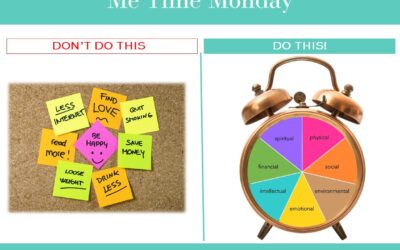While some people started off this month by playing a funny joke on a friend or co-worker, the beginning of April, which marks National Stress Awareness Month, makes me think about the stress that plagues those who are caring for an older loved one. And, believe me, caregiver stress is no joking matter.
While stress is the number one complaint when it comes to a caregiver’s own health and wellness, finding stress relief is just one more thing you have to do. However, if you do not find ways to de-stress, it can seriously impact your ability to continue caring for your loved one.
In fact, a study conducted a few years ago by the Commonwealth Fund found that caregivers are twice as likely as the general population to develop chronic illness such as heart disease or cancer due to prolonged stress.
So how do caregivers spell “Stress Relief?”
Remember the old commercial, “plop, plop, fizz, fizz, oh what a relief it is?” Start by taking a Caregiver Stress Test developed by the American Medical Association or the Alzheimer’s Association that can be found on their Web sites. Just by taking this test you may start to realize that you are nearer to the breaking point than you thought. You can and should use this stress test to share with your doctor.
If you score off the charts, it is time to decompress before your engine blows. Here are five tips to help find that stress relief:
- Talk to a “friend” – a spouse, adult child, sibling, neighbor or other friendly face who can give you a shoulder to cry on or help get your mind off things for even a few minutes. One thing I have heard over and over again from caregivers is that they feel they are all alone. The reality is that you are not alone. By reaching out and voicing your fears, frustrations and anger in a safe environment with a trusted “friend” – you will be amazed at how just talking can start to lift that weight off your shoulders.
- Join a support group of other caregivers – if you are frustrated, angry or depressed, it helps to let off steam by talking to other caregivers who understand. Often, caregivers find that talking to other caregivers who are going through similar challenges and anxieties can be empowering and nurturing. Sometimes other family members and friends can be sympathetic but not empathetic. It is important to find a support group that is specific to your situation – whether you are caring for someone with cancer, Alzheimer’s or in the case of our veterans, you may be a caregiver of someone with post-traumatic stress disorder or a physical disability – find the group where others in the circle or online truly understand.
- Try yoga, tai chi, or meditation – just calmly sit in a quiet room and listen to your breathing. Dr. Oz advises taking 10 deep, long breaths a day – it will help take your mind on a journey to a happy place and has positive health impact. Learning how to relax is a true skill – one you have to practice every day.
- Do something that soothes you physically – you’ll be amazed at how it calms your mind. A bath is great or if you don’t have the time, just running your hands under warm water for a few minutes can truly relax you.
- Get enough sleep – 7 to 8 hours is recommended. If you find you are tossing and turning at night and you cannot get those eyes closed, try drinking green tea 1-2 hours before bed or put a lavender pillow near your head which aids relaxation.
Stress can be a caregiver’s biggest enemy. When you become a “stress-buster,” you will be on your way to finding that balance that will bring you better health and wellness.
View our Me Time Monday video on Stress Relief. Click here for more tips: http://www.caregivingclub.com/me-time-monday/




Kava is another herb that helps alleviate anxiety, but recent studies show it can produce liver damage if taken in large quantities.
We already have some natural anxiety cures in this article,
and perhaps more could be added to this list in the future, as demand for such information is growing.
Nicole – thanks for sharing – I will be doing some blogs about National Nutrition Month in March and Stress Relief Month in April – keep the tips coming!
Sherri